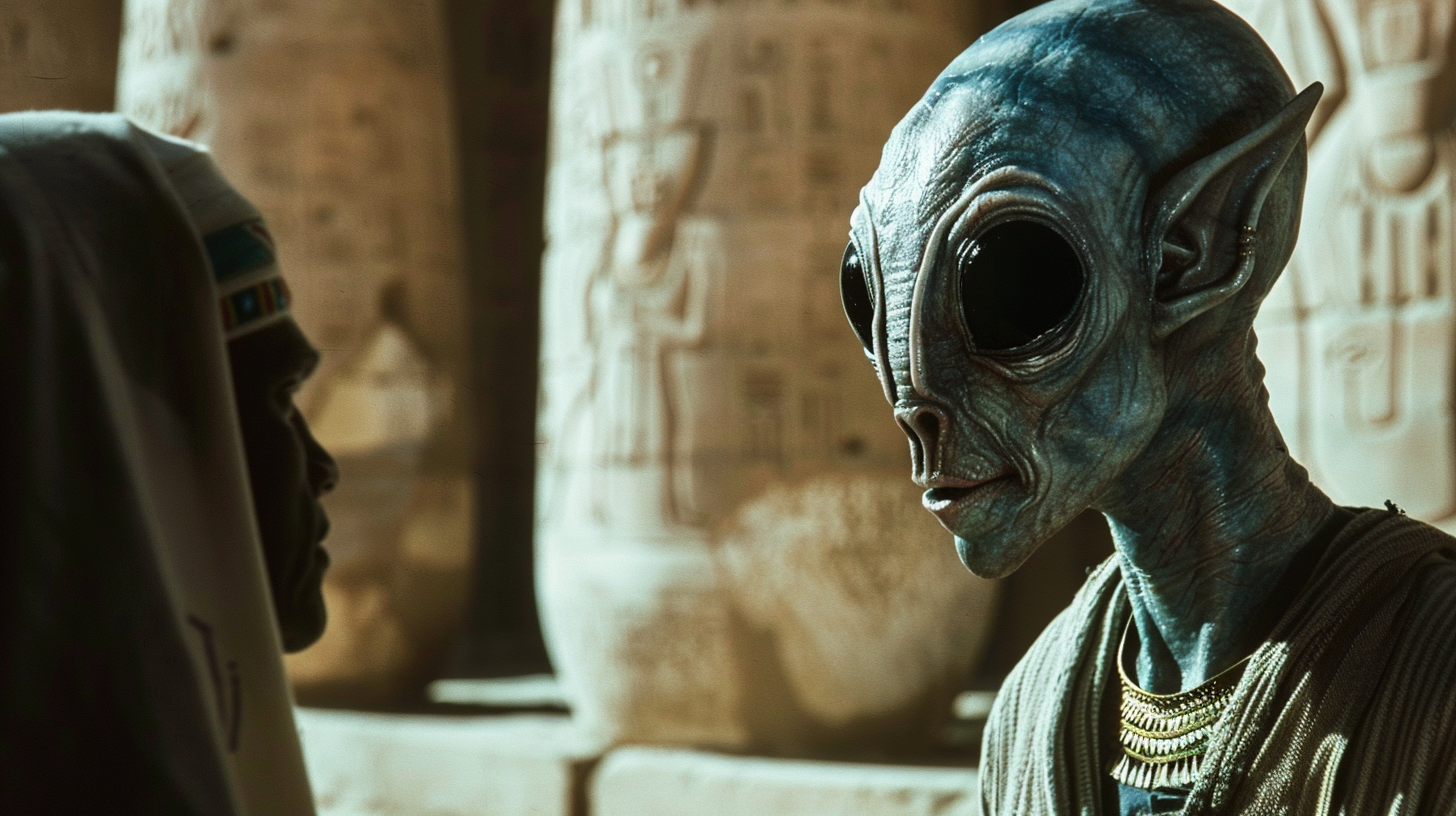Within the enchanting hymns of Sumeria, we find echoes of a civilization’s profound appreciation. These sacred verses, honoring the gods, convey profound respect for their contributions of knowledge and civilization to humanity. Yet, beneath the veneer of adoration lies an intriguing notion—that the origins of this cultural progress might have extraterrestrial roots.
The Sumerian hymns vividly illustrate divine kindness, crediting the gods with granting wisdom, agriculture, and governance. Among these revered deities stands Enki, the deity of wisdom and water, in a prominent position. Celebrated for his influence on human fate, Enki is commended for his teachings and guidance, believed to have liberated humanity from ignorance and ushered in enlightenment.
Nevertheless, alternate interpretations of Sumerian hymns suggest a more profound meaning behind these divine bestowals. Advocates of the ancient astronaut theory propose that the Sumerian gods could have been sophisticated extraterrestrial entities who visited Earth in antiquity. According to this viewpoint, the knowledge and civilization imparted to humanity by these entities might have been a deliberate endeavor to enlighten and guide our species.

The similarities between Sumerian hymns and current theories of extraterrestrial intervention are remarkable. Both narratives revolve around the transmission of knowledge and culture from beings beyond our world to early human communities. Moreover, the profound reverence the Sumerians held towards their gods signifies a deep-seated belief in the benevolence and sagacity of these celestial entities.
Despite the speculative nature of extraterrestrial participation in human history, it encourages us to reassess our perceptions of ancient civilizations and their accomplishments. Whether perceived as figurative stories or indications of encounters with advanced beings, Sumerian hymns provide valuable glimpses into the enigmas of human existence and our tie to the universe.
While we delve deeper into scrutinizing and interpreting these ancient writings, we are reminded of the enduring impact of mythology and the profound queries arising at the nexus of science, spirituality, and human history. Whether the gods of Sumeria were fictional constructs or visitors from outside our world, their impact on human culture and civilization is unequivocal.
